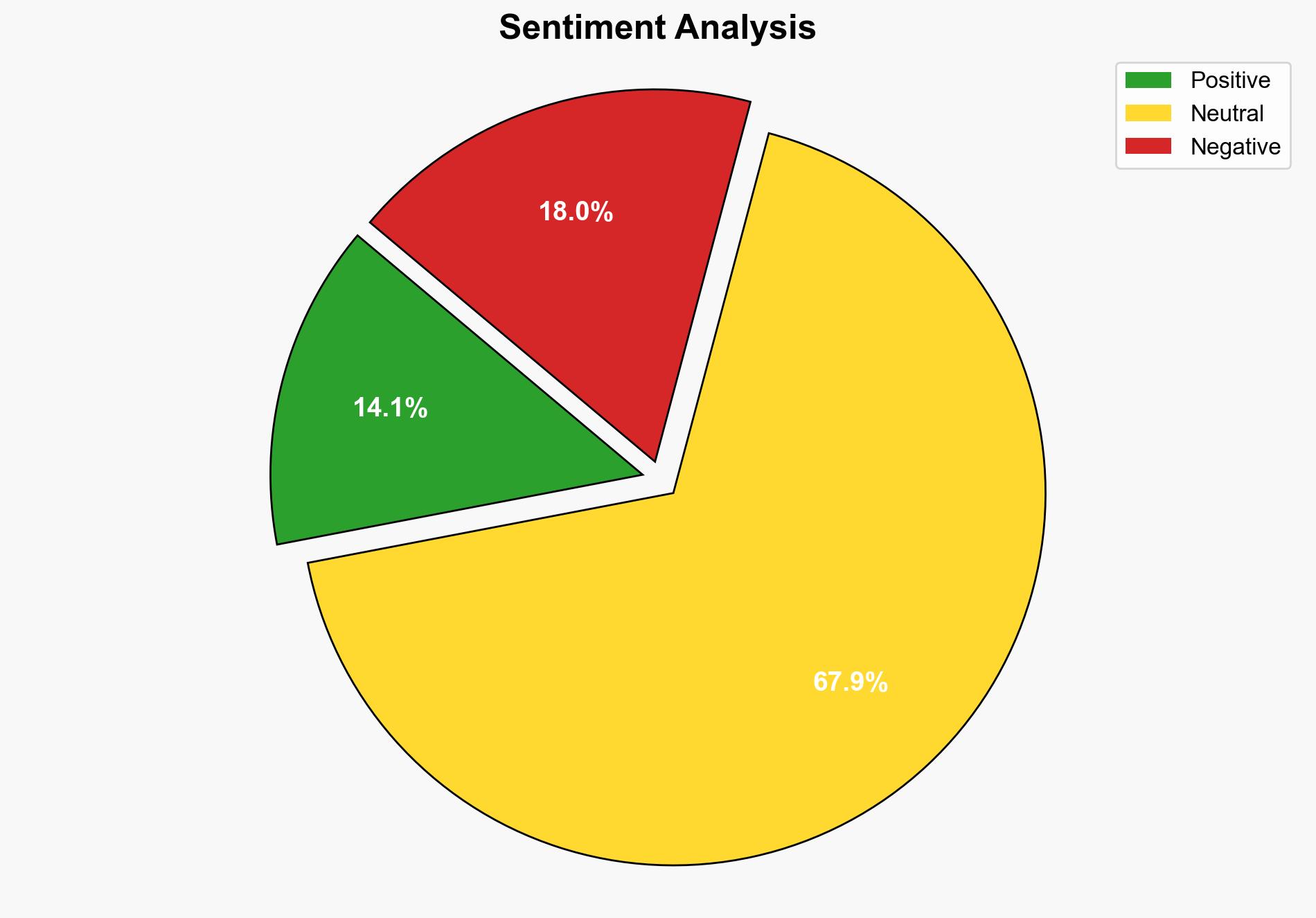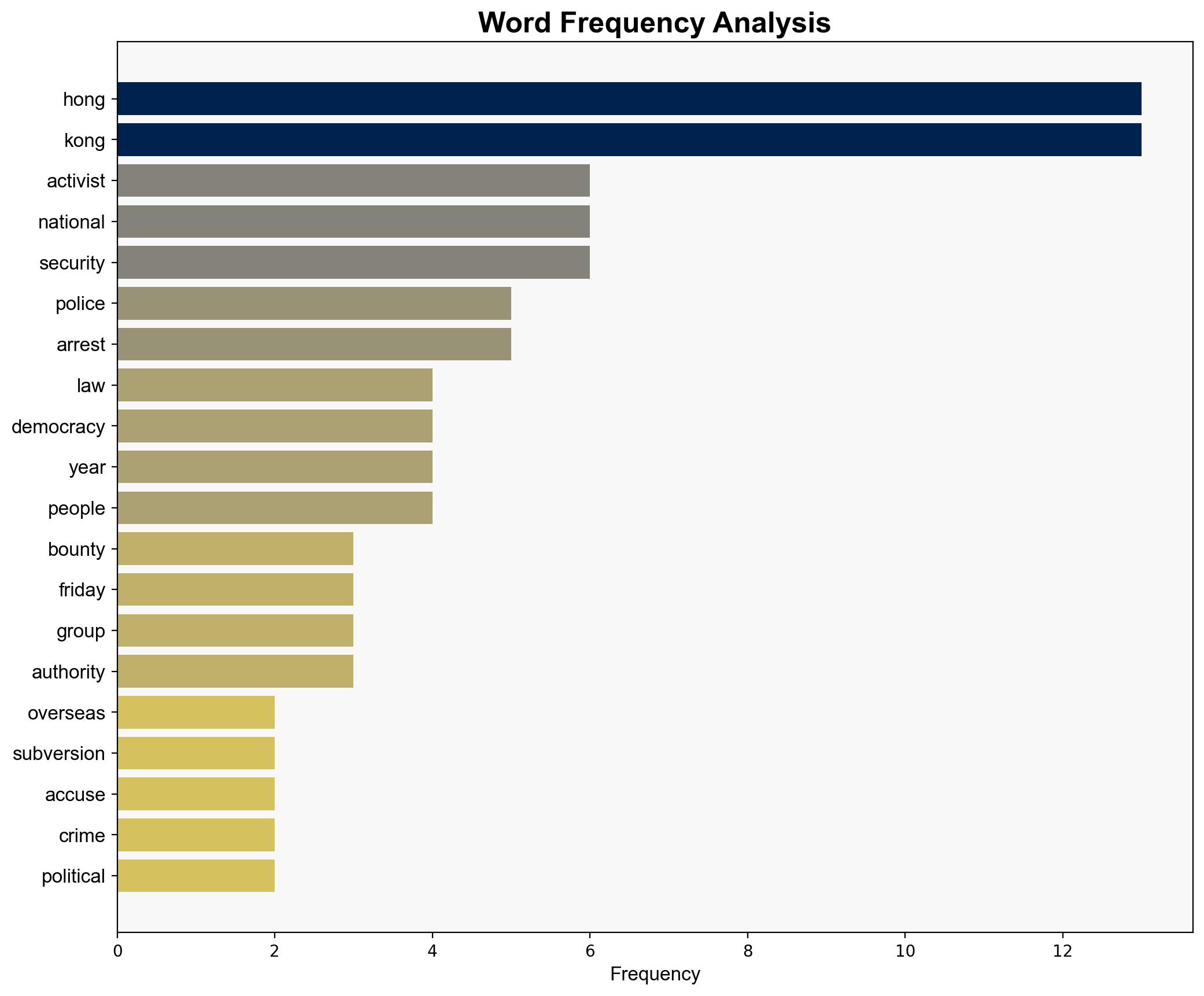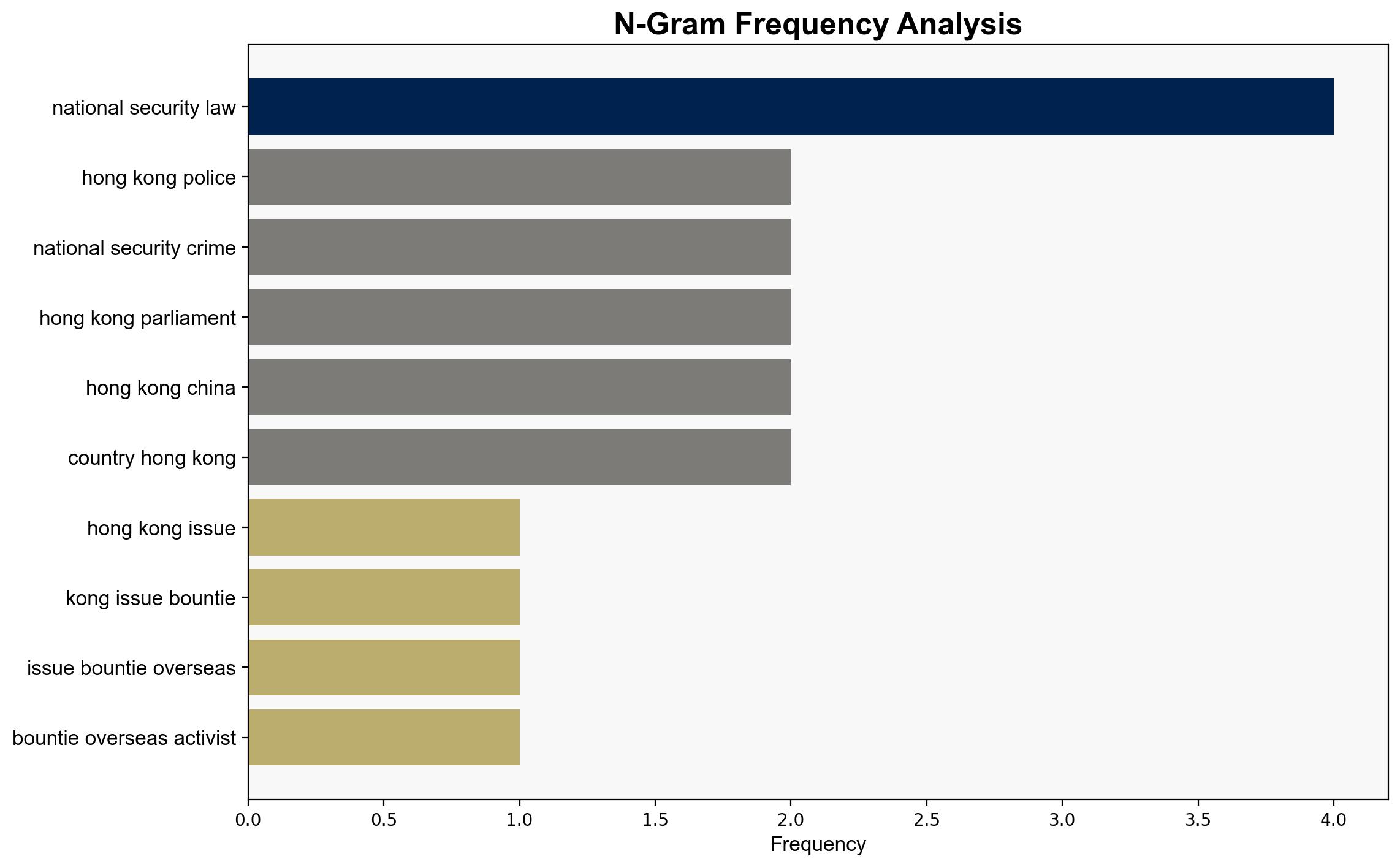Hong Kong Issues Bounties For 19 Overseas Activists On Subversion Charges – International Business Times
Published on: 2025-07-25
Intelligence Report: Hong Kong Issues Bounties For 19 Overseas Activists On Subversion Charges – International Business Times
1. BLUF (Bottom Line Up Front)
The Hong Kong government’s issuance of bounties for overseas activists is a strategic move to deter political dissent and reinforce the national security law’s reach beyond its borders. The most supported hypothesis is that this action aims to intimidate dissidents and signal Beijing’s unwavering stance on national security. Confidence level: Moderate. Recommended action: Monitor international reactions and assess the potential for diplomatic tensions or retaliatory measures.
2. Competing Hypotheses
1. **Hypothesis A**: The bounties are primarily symbolic, intended to intimidate dissidents and signal Beijing’s commitment to enforcing the national security law globally.
2. **Hypothesis B**: The bounties are a strategic attempt to leverage international legal systems to extradite activists, despite low probability due to political asylum protections.
Using ACH 2.0, Hypothesis A is better supported due to the symbolic nature of the bounties and the historical context of similar actions receiving international criticism without resulting in extraditions. Hypothesis B is less supported, given the low likelihood of extradition from countries with strong political asylum policies.
3. Key Assumptions and Red Flags
– **Assumptions**: It is assumed that the bounties will not lead to actual extraditions due to international legal protections. Another assumption is that the symbolic nature of the bounties will effectively deter dissent.
– **Red Flags**: The potential for misinterpretation of the bounties as a direct threat to international legal norms. Lack of clarity on how these actions align with Hong Kong’s long-term strategic goals.
4. Implications and Strategic Risks
The issuance of bounties could escalate diplomatic tensions, particularly with Western nations that have criticized Hong Kong’s national security law. There is a risk of retaliatory measures, such as sanctions or increased asylum offers to targeted activists. Economically, this could impact Hong Kong’s international business relations and investor confidence. Psychologically, it may further polarize Hong Kong’s society and diaspora.
5. Recommendations and Outlook
- Monitor international diplomatic responses and prepare for potential retaliatory measures.
- Engage in dialogue with international partners to clarify legal positions and mitigate tensions.
- Scenario Projections:
- Best Case: Bounties are largely ignored internationally, with minimal impact on diplomatic relations.
- Worst Case: Significant diplomatic fallout leading to sanctions and increased asylum offers to activists.
- Most Likely: Continued international criticism with limited tangible consequences.
6. Key Individuals and Entities
The report does not specify individual names of the activists or officials involved, focusing instead on the broader strategic implications.
7. Thematic Tags
national security threats, geopolitical tensions, international law, political dissent




